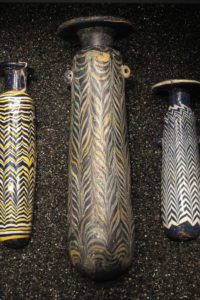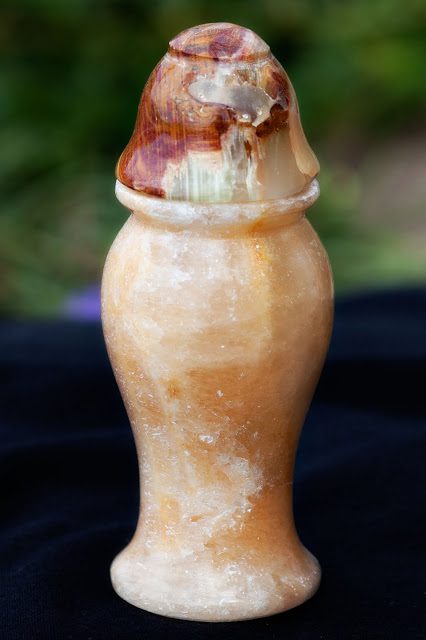ἀλάβαστρον – alabastron

The alabaster receptacle of the anointing oil
To understand why Jesus would say, “the poor are with you always,” we must understand anointing as commonly understood in the culture of the day.
People traveled to and from homes with no running water mostly by foot and anointing is often associated with washing or cleansing. Jesus instructs us to give to the poor. He cautions not to neglect washing or anointing ourselves with oil when we fast for the Lord.
MATTHEW 6:17-18
But when you fast, anoint your head and wash your face, that your fasting may not be seen by others but by your Father who is in secret. And your Father who sees in secret will reward you.
A common anointing
Anointing with oil along with washing up was part of hospitality, a godly attribute commanded of the Jews. Of course these various oils and ointments needed kept in some sort of container.
On special occasions a newly opened, expensive fresh oil was most appropriate. The ancients considered alabaster to be the best material in which to preserve their ointments. Breaking the box, probably means breaking the seal of the box. 1.
An earlier anointing
This scene takes place in the early days of Jesus’ preaching of the Good News in Galilee. Jesus cleansed lepers. Jesus healed a man who could not walk and a man who could not use his hand.
Crowds came to hear him and to be healed of their diseases. Those troubled with unclean spirits cured and all the crowd sought to touch him, for power came out from him and healed them all.
LUKE 7:
Jesus heals the servant of a Roman soldier by command from afar. Amazingly, Jesus raised the son of a widow to life from a coffin at his funeral! Healing – healing of every imaginable sort, cleansing of the body and soul by the hand of God!
36 One of the Pharisees asked him to eat with him, and he went into the Pharisee’s house and reclined at table. 37 And behold, a woman of the city, who was a sinner, when she learned that he was reclining at table in the Pharisee’s house, brought an alabaster flask of ointment, 38 and standing behind him at his feet, weeping, she began to wet his feet with her tears and wiped them with the hair of her head and kissed his feet and anointed them with the ointment.
Jesus accepts our common anointing
There it is again, earlier in Jesus’ ministry, the alabaster flask of ointment. How does Jesus react here in the presence of his esteemed host?
44 Then turning toward the woman he said to Simon, “Do you see this woman? I entered your house; you gave me no water for my feet, but she has wet my feet with her tears and wiped them with her hair. 45 You gave me no kiss, but from the time I came in she has not ceased to kiss my feet. 46 You did not anoint my head with oil, but she has anointed my feet with ointment.
Consequently, Jesus admonishes his host for neglecting the very least of hospitality commonly extended to guests. He corrects Simon’s hesitation to honor a guest by instead praising the anointing by this woman. For she has done what Simon was obliged to do. And the Lord further emphasizes his authority by his peace of dismissal.
” 48 And he said to her, “Your sins are forgiven.”
50 And he said to the woman, “Your faith has saved you; go in peace.”
Anointed as a welcome guest, healer, one who revives the soul of one dead in the flesh. Jesus, anointed as a King given His due. And finally, anointed for his own burial, only to rise again to rule eternally.
To be continued…


Leave a Reply